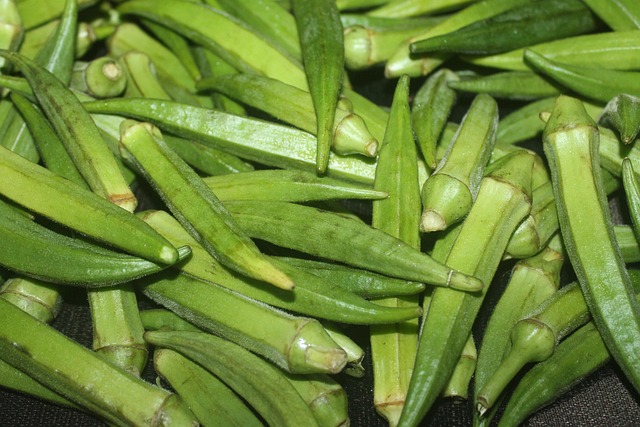Blog
The Nutritional Powerhouse: Facts and Benefits of Okra (Okro)

Okra, also known as okro or “lady’s finger,” is a versatile vegetable celebrated for its nutritional richness and health-promoting properties. This guide explores its key nutrients, health benefits, culinary uses, and potential considerations, supported by scientific insights.
Table of Contents
- Introduction to Okra
- Nutritional Profile of Okra
- 2.1 Vitamins and Minerals
- 2.2 Fiber and Antioxidants
- Health Benefits of Okra
- 3.1 Supports Digestive Health
- 3.2 Regulates Blood Sugar Levels
- 3.3 Boosts Heart Health
- 3.4 Enhances Immune Function
- 3.5 Promotes Skin and Vision Health
- Culinary Uses of Okra
- Potential Side Effects and Considerations
- Conclusion
- References
1. Introduction to Okra
Okra (Abelmoschus esculentus) is a green, pod-shaped vegetable widely consumed in tropical and subtropical regions. Known for its mild flavor and unique mucilaginous texture, it is a staple in soups, stews, and stir-fries across cuisines.
2. Nutritional Profile of Okra
Okra is low in calories but packed with essential nutrients (per 100g raw):
| Nutrient | Amount |
|---|---|
| Calories | 33 kcal |
| Dietary Fiber | 3.2 g |
| Vitamin C | 23 mg (38% DV*) |
| Vitamin K | 31.3 µg (39% DV) |
| Folate | 60 µg (15% DV) |
| Magnesium | 57 mg (14% DV) |
| Potassium | 299 mg (8% DV) |
| Antioxidants | Flavonoids, Polyphenols |
*DV = Daily Value based on a 2,000-calorie diet.
3. Health Benefits of Okra
3.1 Supports Digestive Health
- High fiber content aids digestion, prevents constipation, and promotes gut health.
- Mucilage acts as a natural laxative.
3.2 Regulates Blood Sugar Levels
- Soluble fiber slows sugar absorption, benefiting diabetics.
- Studies suggest okra may improve insulin sensitivity.
3.3 Boosts Heart Health
- Fiber reduces LDL (“bad”) cholesterol.
- Antioxidants combat oxidative stress linked to heart disease.
3.4 Enhances Immune Function
- Vitamin C and antioxidants strengthen immunity and reduce inflammation.
3.5 Promotes Skin and Vision Health
- Vitamin C supports collagen production.
- Vitamin A and beta-carotene protect eye health.
4. Culinary Uses
- Popular Dishes: Gumbo (Southern U.S.), bhindi masala (India), okra soup (West Africa).
- Cooking Tips: Roast, grill, or sauté to reduce sliminess; pair with acidic ingredients (tomatoes, lemon).
5. Potential Side Effects and Considerations
- Oxalates: May contribute to kidney stones in susceptible individuals.
- Allergies: Rare but possible.
- Moderation: Excessive consumption may cause bloating.
6. Conclusion
Okra is a nutrient-dense vegetable with benefits ranging from blood sugar management to immune support. Its versatility in cooking makes it an excellent addition to a balanced diet.
